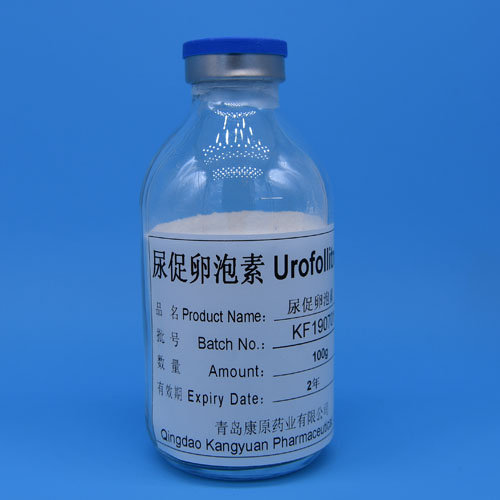Urofollitropin is a hormone medication used to treat infertility in women.
The medication works by stimulating the ovaries to produce multiple eggs,
increasing the chances of pregnancy. Here are some instructions for using
urofollitropin:
Dosage: The dosage of urofollitropin will be determined by your doctor
based on your medical history and physical condition. It is important to take
the medication exactly as prescribed by your doctor.

Administration: Urofollitropin is administered by injection under the skin
(subcutaneously). Your healthcare provider will show you how and where to
properly administer the injection. Follow their instructions carefully.
Timing: Urofollitropin injections are usually given daily for around 7-14
days, starting on the second or third day of the menstrual cycle. Your doctor
may adjust the timing and frequency of the injections as needed. It is important
to stick to the schedule and not miss any injections.
Storage: Urofollitropin should be stored in the refrigerator at 2-8°C
(36-46°F) until use. Do not freeze the medication. Once mixed, the medication
should be used immediately, and any unused solution should be discarded.
Monitoring: Your doctor will monitor your progress during treatment using
blood tests, ultrasounds, and other diagnostic tests as needed. Your dosage may
be adjusted based on the results of these tests.
Adverse reactions: Some patients may experience side effects from
urofollitropin, such as abdominal pain, bloating, nausea, and headache. If you
experience any of these symptoms or other serious side effects, contact your
doctor immediately.
Precautions: Urofollitropin should not be used by individuals who are
allergic to any of its components or are pregnant. It should also be used with
caution in individuals with certain medical conditions, such as kidney disease
or bleeding disorders.
In conclusion, using urofollitropin requires careful monitoring,
administration, and storage. It is important to follow your doctor's
instructions carefully and speak with them about any concerns or questions you
may have. With proper use and monitoring, urofollitropin can be an effective
treatment for infertility.